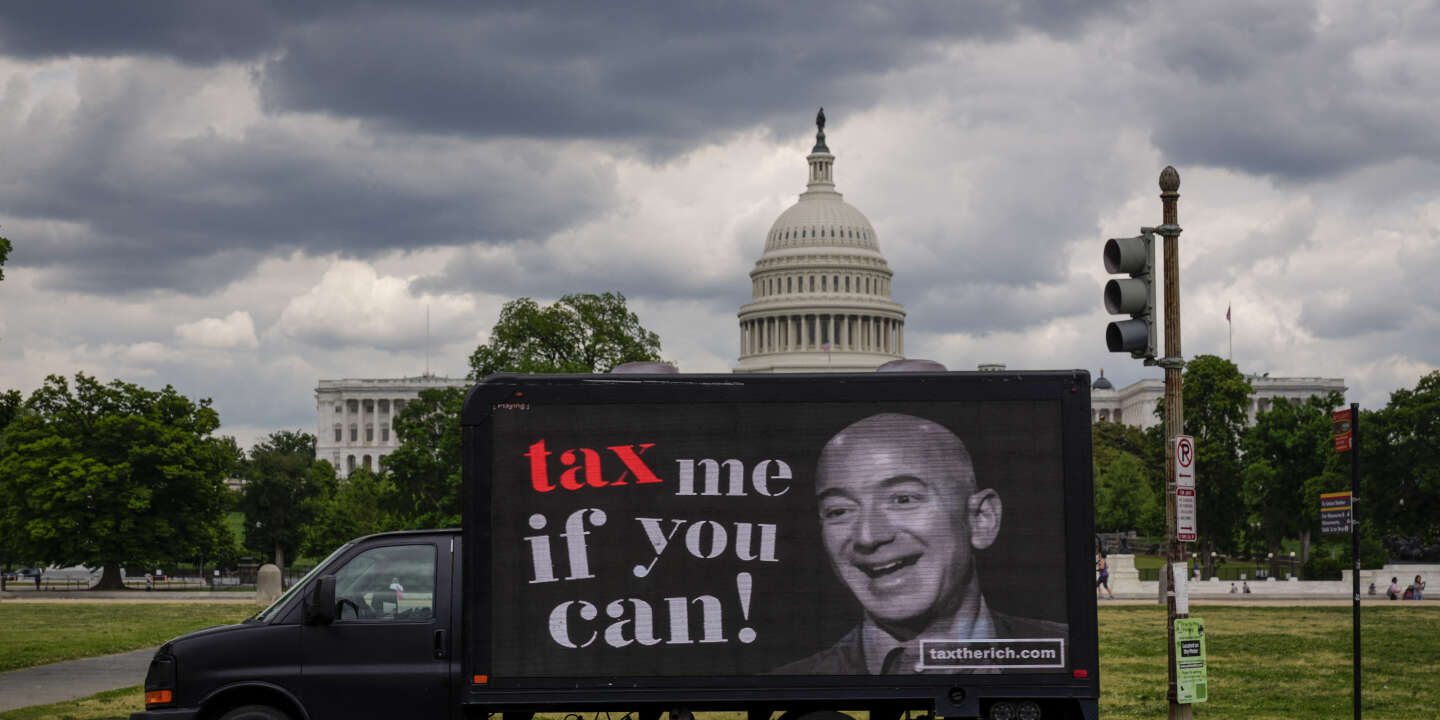“Pay your fair share! “ : Joe Biden repeated this injunction three times, Thursday, October 28, for billionaires. This incantation cannot hide the reality that has fallen into darkness: the President of the United States has indeed given up taxing billionaires by abandoning the project of a quasi-tax on fortune. The idea was to tax the unrealized capital gains of 700 American billionaires at the rate of 23.8%, which would have led the two richest men on the planet, Elon Musk (Tesla) and Jeff Bezos (Amazon), to pay $ 50 and $ 45 billion over five years, according to calculations by French economist Gabriel Zucman. Likewise, the idea of raising the corporate tax rate from 21% to 28% has been abandoned. There is no carbon tax as the Glasgow climate summit approaches, but it was never considered.
As Joe Biden pledged not to penalize Americans earning less than $ 400,000 a year, he announced a series of screw tightening on corporations and the richest to cash in some $ 2,000 billion over eight years. The challenge is to finance its social plan, the amount of which has been halved, to $ 1,750 billion over six to ten years.
Thus, the minimum corporate tax rate will be 15%, offshore profits will be taxed more, under the agreements of the Organization for Economic Cooperation and Development, while high incomes will have a surcharge of 5%. above $ 10 million, 8% above $ 25 million, which will result in a maximum federal marginal taxation of 45%. The most powerful instrument is the strengthening of the means of the tax authorities, supposed to bring in 400 billion dollars.
Biden can hardly make a revolution
Revolutions will wait. With a Senate majority reduced to the additional vote of Vice President Kamala Harris, Mr. Biden can hardly make a revolution. Already this winter, he had had to give up raising the federal minimum wage to $ 15 an hour. This has been stuck at 7.25 dollars since 2009, following a decision taken under George W. Bush.
On the expenditure side, Joe Biden’s plan is essentially divided into three main chapters: the environment – this subject was initially in the infrastructure plan – for 550 billion dollars, the child and family policy for 750 billion, housing and health for 350 billion. “It has been a messy and frustrating budget process. But we end up with reasonable work that gives priority to certain most important areas such as climate, children and health coverage for those who do not have any ”, s‘is delighted Jason Furman, professor at Harvard and former economic adviser to Barack Obama.
You have 38.42% of this article to read. The rest is for subscribers only.
–


